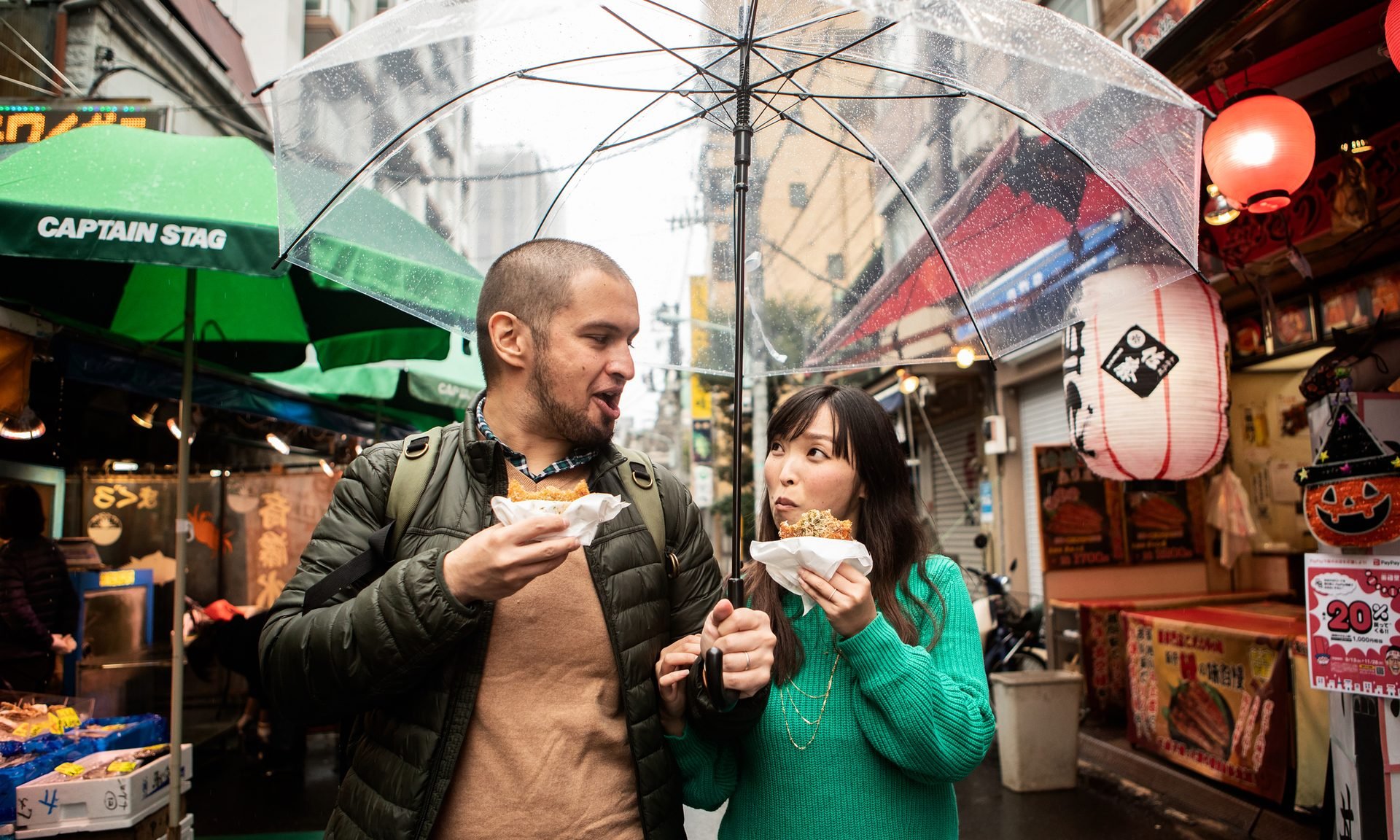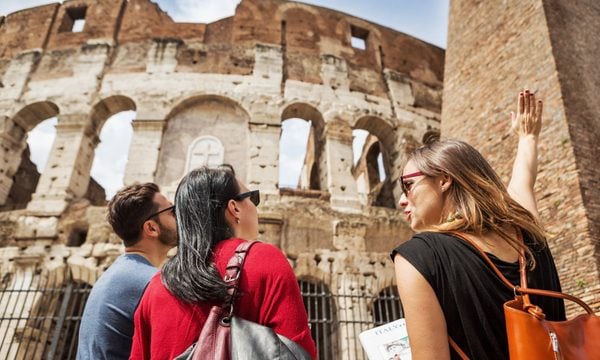How to Plan a Trip
Consider offseason travel and arm your wallet with some strong travel cards to get the best deals and perks.

Many or all of the products on this page are from partners who compensate us when you click to or take an action on their website, but this does not influence our evaluations or ratings. Our opinions are our own.
Planning a trip can feel overwhelming, especially if you're new to travel. With so many destinations to choose from, flights to book, and hotels to sort through, it's easy to get stuck before you even start. But don’t worry—whether you're dreaming of a weekend getaway or an international adventure, breaking the process into simple steps can make it stress-free and even fun.
Whether you pay with cash, points or frequent flyer miles, this guide will walk you through trip planning — from setting a budget and picking the perfect destination to booking accommodations. Plus, you'll even learn how to earn travel rewards along the way.
Be flexible with your destination and travel dates
Many want to travel to a specific place, and there’s nothing wrong with that. Japan in March, Greece in August, and Turks and Caicos in December all sound lovely, but be aware that high-demand destinations come with a high price tag, especially if you have specific travel dates in mind.
We’re not saying to throw a dart at a map to choose your next vacation, but we do recommend being open to a variety of destinations. Let a fare deal guide your travels.
» Learn more: How to shop for flights
Go for shoulder season travel
You don't need to go to a destination during the complete off-season when everything is closed and the weather is terrible. But there's a happy medium between peak and off-season, and it's called shoulder season.
For example, summer is a popular time to visit Europe. However, the autumn and winter months are when you’ll find some of the best flight deals to the continent. It’s also when accommodations are more affordable. So, take the opportunity to explore the world by following the price instead of the destination.
Adjust your travel dates (by just a day or two)
Sometimes adjusting your travel dates by just one or two days can save you hundreds of dollars on airfare.
Additionally, be flexible with travel dates. Yes, a nine-day trip can help you include weekends and use less paid time off, but often flights cost more when your dates are nonnegotiable. We recommend being open to flying midweek to take advantage of the lowest fares.
This phenomenon is particularly pronounced during long weekends like Labor Day and Presidents Day, where people jet off on Friday and return on Monday. Not only are flights generally more expensive on those days, but airports tend to be miserably packed.
» Learn more: Plan your next redemption with our airline points tool
Research what to do at your destination
If you’re visiting for the first time and are unfamiliar with your destination, it might be difficult to decide what to do once you get there. Cappadocia, a region in Turkey, is famous for hot air balloon rides. Australia’s Great Barrier Reef is known for some of the best scuba diving. Finland offers reindeer safaris.
But you don't even have to spend tons of money on over-the-top excursions to have a great trip. Take a free guided walking tour (or use Google Maps to generate your own walking tour route). You could window shop. Or, take part in the growing trend of grocery store tourism.
So how do you find out more about what to do about that place? Google is your friend here. For example, if you have two weeks and are flying to Istanbul, search online for “two-week Turkey itinerary” and read through several travel blogs for ideas.
You’ll likely find out about the relaxing hammams in Istanbul, the magical hot air balloon rides in Cappadocia, the ruins in the ancient city of Ephesus and the beautiful beach towns of Bodrum Peninsula. Put together an itinerary based on your interests and decide how many nights you want to spend in each city.
» Learn more: How to find cheap things to do in any city
Book accommodations
Unless you’re going on a short trip to one city, book your hotels after you create an itinerary. For a multi-city trip, decide how many nights you want to stay in each place and book your accommodations accordingly.
If you have hotel loyalty points, look up which hotel chains are present in each location and determine whether a redemption offers good value or if it’s better to pay cash instead.
» Learn more: The most valuable hotel rewards programs this year
If you’d rather stay in a boutique hotel or a guesthouse, look up your options on a site such as Booking.com. The website is a travel agency for lodging, where you can find anything from hostels to five-star hotels. If you sign up for its loyalty program and reserve many stays through the site, you can get discounts on hotel bookings, complimentary breakfast and upgrades at participating properties.

By signing up, you will receive newsletters and promotional content and agree to our Terms of Use and acknowledge the data practices in our Privacy Policy. You may unsubscribe at any time.
Learn how to get around in your destination
If you’re going on a road trip across the United States, this doesn’t apply to you as your choice of transportation has already been decided.
However, if you’re headed abroad and have multiple cities on the agenda, learn how to best travel around the country. For example, train travel is well-established in Germany, and you shouldn’t have problems traveling between Frankfurt, Stuttgart and Munich. However, visiting the Greek islands requires either flying or taking a ferry.
You might want a rental car in some cities. But in others that are walkable or where public transit is good, then the cost of a rental car (plus parking) might not be worth it. For example, NerdWallet recommends ditching the rental car in Honolulu, but does recommend one on other Hawaiian islands or for exploring other parts of Oahu.
Rome2rio is a helpful website for planning transport in any geographical location. Enter two cities and find out the best ways to travel between them, including by bus, train and rideshare.
Open a travel rewards card
Signing up for a travel rewards card before a trip is a great idea. You can pay for everything with one card and meet the minimum-spending requirement faster than you would at home.
We recommend applying for a card that earns bonus rewards on travel and dining. For example, the American Express® Green Card earns 3 points per dollar spent on travel, transit and at restaurants ( see rates and fees ). Use it to pay for lodging, public transport and dining out and earn triple points on most of the spending you do while traveling. Terms apply.
The Citi Strata Premier® Card earns 3 points per dollar on air travel and hotels, at restaurants and in supermarkets, so again, many relevant bonus categories are covered. If you book a hotel totaling at least $500 through the Citi ThankYou Rewards portal and use the Citi Strata Premier® Card to pay for it, you’ll receive a $100 credit back, once per calendar year.
The Chase Sapphire Preferred® Card is another great card to use on a trip and earn bonus points. With this card, you’ll earn 3 points per dollar on dining and 2 points per dollar on travel. You can also get an annual $50 credit when booking a hotel through Chase's travel portal.
» Learn more: The best travel card welcome bonuses right now
Set up lounge access
Many premium travel cards offer airport lounge access. After you book your flights, find out which airports have lounges and how many guests you can bring. Plan your lounge visits based on your layovers.
For example, the Chase Sapphire Reserve® comes with Priority Pass Select membership that includes lounge access (but no restaurant credit). You have to enroll in the benefit prior to traveling to get your membership activated before your trip.
If you hold the American Express Platinum Card®, you have many lounge options. Cardmembers receive access to the following lounges:
- Delta Sky Club (10 visits per year when flying Delta Air Lines). Cardholders can get unlimited Delta Sky Club access if they spend more than $75,000 on the card in a calendar year.
- Escape Lounge.
- Lufthansa Business Lounge (when flying any class with Austrian Airlines, Lufthansa or Swiss International Air Lines).
- Lufthansa Senator Lounge (when flying business class with Austrian Airlines, Lufthansa or Swiss International Air Lines).
- Plaza Premium.
- Priority Pass (no restaurant credit). Enrollment required.
- The Centurion Lounge.
Terms apply.
Buy travel insurance
Although many travel credit cards come with built-in travel protection benefits, such as trip delay, baggage loss and auto rental collision damage waiver, you'll get more protection and higher coverage limits if you buy a separate travel insurance plan.
To compare rates, you can use a travel insurance aggregator, such as Squaremouth (a NerdWallet partner), that helps travelers find plans from multiple insurance providers. Enter your trip parameters and some personal details to find the right coverage for you.
When you’re ready to plan a trip
Planning a trip can be intimidating, but putting all the puzzle pieces together to create a beautiful travel picture feels great. Be open to nontraditional destinations and offseason travel dates to get the best deals. Become familiar with your credit card’s perks, or get another card for travel spending while on vacation. Finally, buy a travel insurance policy and have fun.
All information about the American Express® Green Card has been collected independently by NerdWallet. The American Express® Green Card is no longer available through NerdWallet. To view rates and fees of the American Express Platinum Card®, see this page.
How to maximize your rewards
You want a travel credit card that prioritizes what’s important to you. Here are some of the best travel credit cards of 2026:
- Flexibility, point transfers and a large bonus: Chase Sapphire Preferred® Card
- No annual fee: Wells Fargo Autograph® Card
- Flat-rate travel rewards: Capital One Venture Rewards Credit Card
- Bonus travel rewards and high-end perks: Chase Sapphire Reserve®
- Luxury perks: American Express Platinum Card®
- Business travelers: Ink Business Preferred® Credit Card
Article sources
NerdWallet writers are subject matter authorities who use primary,
trustworthy sources to inform their work, including peer-reviewed
studies, government websites, academic research and interviews with
industry experts. All content is fact-checked for accuracy, timeliness
and relevance. You can learn more about NerdWallet's high
standards for journalism by reading our
editorial guidelines.
NerdWallet's 2026 Best Premium Travel Credit Card
Capital One Venture X Rewards Credit Card 
Travel
Hotel

With a big sign-up bonus, travel credits, high rewards and airport lounge access, this card could be well worth its annual fee — which is lower than many competitors.
More like this
Related articles





